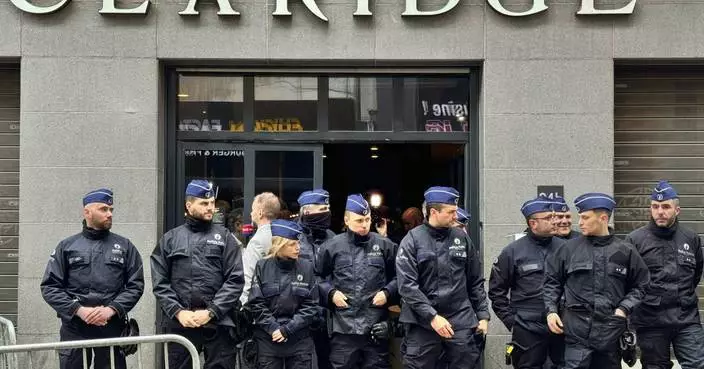Danish Prime Minister Mette Frederiksen has had a phone conversation with U.S. President Donald Trump amid a dispute about Greenland, her office said Friday.
Earlier this week, Trump scrapped a visit to Denmark by saying that Frederiksen was "nasty" when she rejected his idea of buying Greenland as an absurdity.
Both leaders spoke late Thursday, and Danish media reported that the call was "constructive." Frederiksen's office says details of the discussion won't be released.
It is believed that it was the first time the two spoke since Frederiksen, who repeatedly has said the U.S. remains one of Denmark's close allies, took office June 27.
On Tuesday, Trump abruptly canceled a Sept. 2-3 trip to Denmark as part of a European tour after Frederiksen had called Trump's idea to buy Greenland "an absurd discussion."
She also had said that Denmark doesn't own Greenland, which belongs to its people. The scarcely populated island is part of the Danish realm and has its own government and parliament.
The political brouhaha over the world's largest island comes from its strategic location in the Arctic. Global warming is making Greenland more accessible to potential oil and mineral resources. Russia, China, the U.S., Canada and other countries are racing to stake as strong a claim as they can to Arctic lands, hoping they will yield future riches.
The sparsely populated island, which is four times zones behind Copenhagen, became a Danish colony in 1775 and remained that way until 1953, when Denmark revised its constitution and made the island a province.
In 1979, Greenland and its 56,000 residents, who are mainly indigenous Inuits, got extensive home rule but Denmark still handles its foreign and defense policies, as well as currency issues.
Denmark pays annual subsidies of 4.5 billion kroner ($670 million) to Greenland whose economy otherwise depends on fisheries and related industries.
WARSAW, Poland (AP) — Polish Prime Minister Donald Tusk expressed satisfaction on Monday after a series of candidates supported by his party won weekend races for mayor.
Candidates from his pro-European Union centrist Civic Coalition, or running with the party's backing, won in a series of cities in the second round of local elections held on Sunday, among them Krakow, Poznan, Wroclaw and Rzeszow.
“It is very difficult to clearly say who won and who lost,” Tusk said Monday. “But if we compare these results, especially in the most attractive places, on these attractive battlefields ... then I actually have reasons for satisfaction.”
“Law and Justice has simply disappeared in many places,” Tusk added at a news conference, referring to the main opposition party.
The results put Civic Coalition in a favorable position as the country looks next to elections to the European Parliament on June 9.
Mayors were chosen in a total of 748 cities and towns where no single candidate won at least 50% of the vote during the first round on April 7.
Candidates for Tusk’s party also recaptured cities where they had not held power for many years, including Zielona Gora, Legnica and Torun.
The local and regional elections were viewed as a test for Tusk's pro-European Union government four months after it took power at the national level. Sunday's second round strengthened the Tusk government's leverage in the cities, which should facilitate cooperation on development projects and allotment of EU funds.
Tusk's allies also won in some places in the first round two weeks ago, including in Warsaw, where incumbent Mayor Rafal Trzaskowski was an easy victor.
In the first round, the right-wing Law and Justice, prevailed on the level of regional assemblies in the country's 16 provinces, where it took 34.3% of the votes, while Tusk's Civic Coalition got 30.6%. Law and Justice governed on the national level from 2015-23.
Tusk’s socially liberal Civic Coalition traditionally has strong support in cities, while Law and Justice has a more solid base in conservative rural areas, particularly in eastern Poland.
Civic Coalition is the largest group in a three-party coalition that governs the EU nation of 38 million people. The coalition is pro-European Union but otherwise spans a wide ideological spectrum with left-wing politicians in the Left party as well as conservatives in the Third Way.
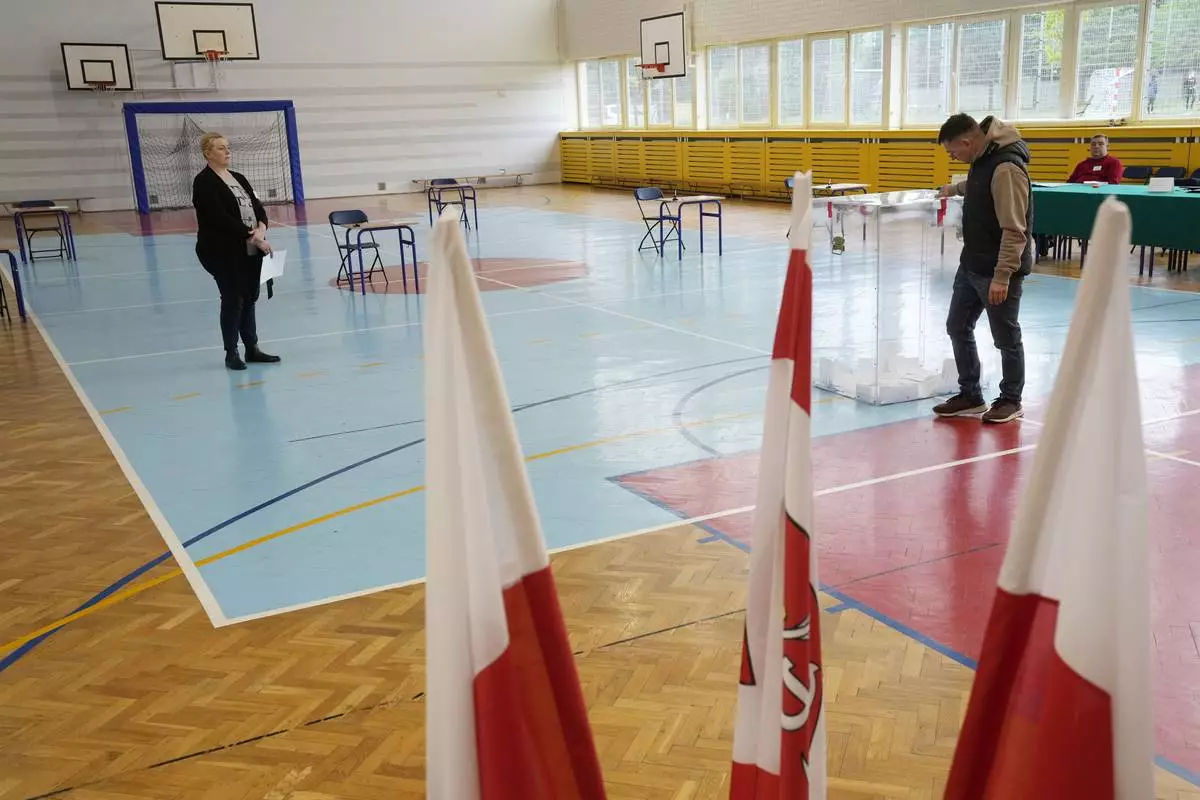
Polish voters take part in a local runoff election in Lomianki, near Warsaw, Poland on Sunday, April 21, 2024. Voters are choosing mayors who did not win outright in the first round of the election two weeks earlier. (AP Photo/Czarek Sokolowski)
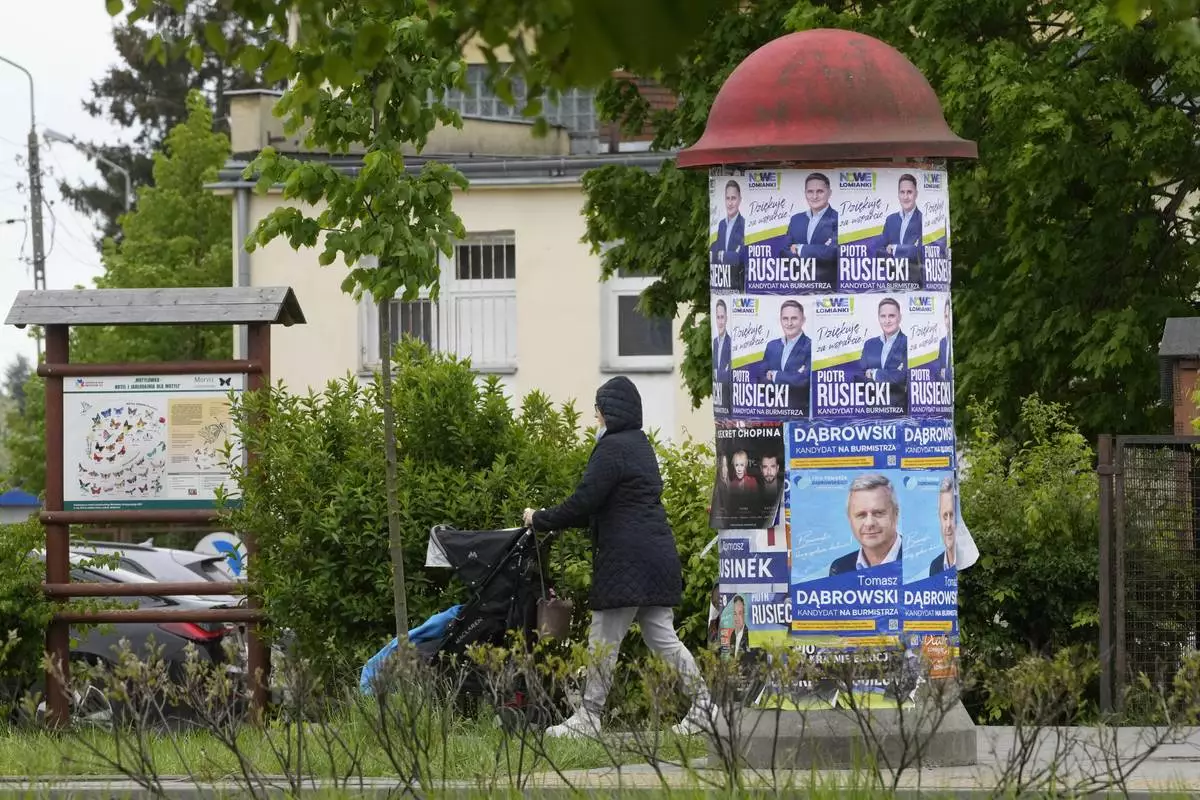
Campaign posters promote candidates as Poles vote in local and regional elections in Lomianki, near Warsaw, Poland on Sunday, April 21, 2024. Voters are choosing mayors who did not win outright in the first round of the election two weeks earlier. (AP Photo/Czarek Sokolowski)
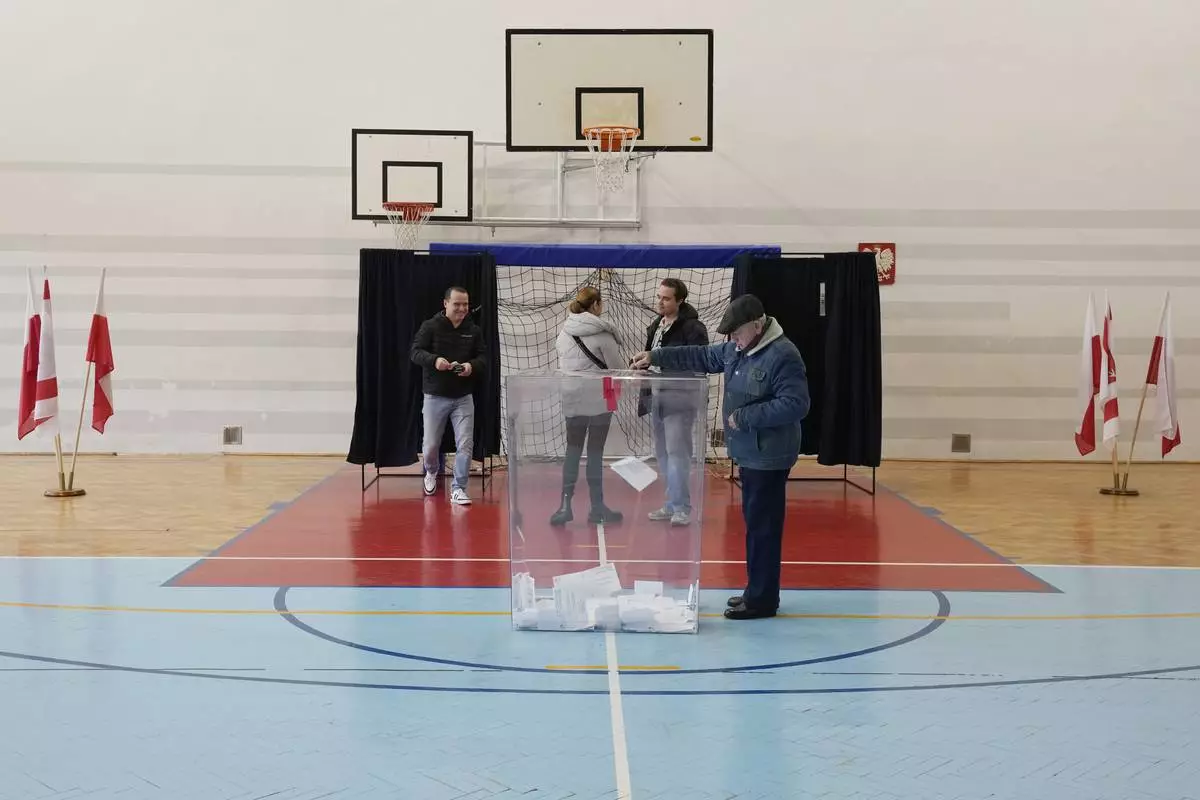
Polish voters take part in a local runoff election in Lomianki, near Warsaw, Poland on Sunday, April 21, 2024. Voters are choosing mayors who did not win outright in the first round of the election two weeks earlier. (AP Photo/Czarek Sokolowski)

Polish voters take part in a local runoff election in Lomianki, near Warsaw, Poland on Sunday, April 21, 2024. Voters are choosing mayors who did not win outright in the first round of the election two weeks earlier. (AP Photo/Czarek Sokolowski)
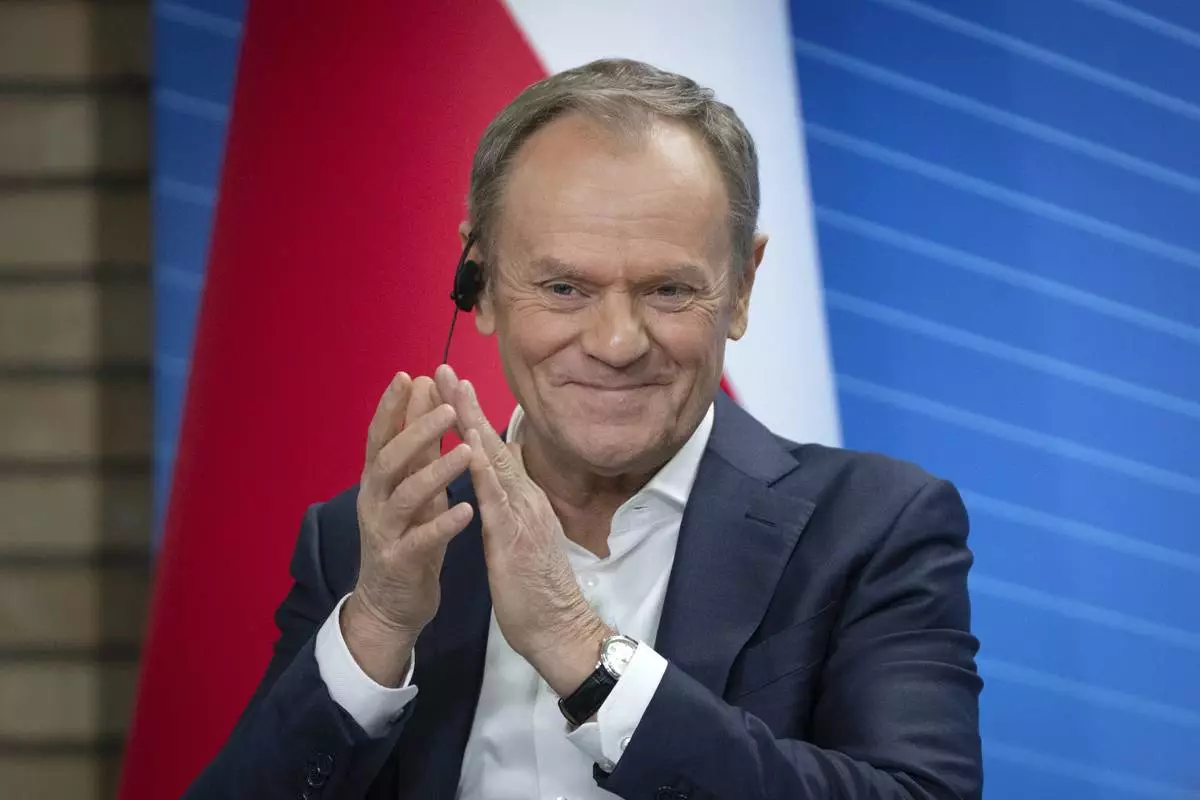
FILE - Poland's Prime Minister Donald Tusk reacts during his and Ukrainian President Volodymyr Zelenskyy meeting with students in Kyiv, Ukraine, Monday, Jan. 22, 2024. Poland's Prime Minister Donald Tusk is celebrating a victory on Monday April 22, 2024 after a series of candidates supported by his party won weekend races for mayor. (AP Photo/Efrem Lukatsky, File)
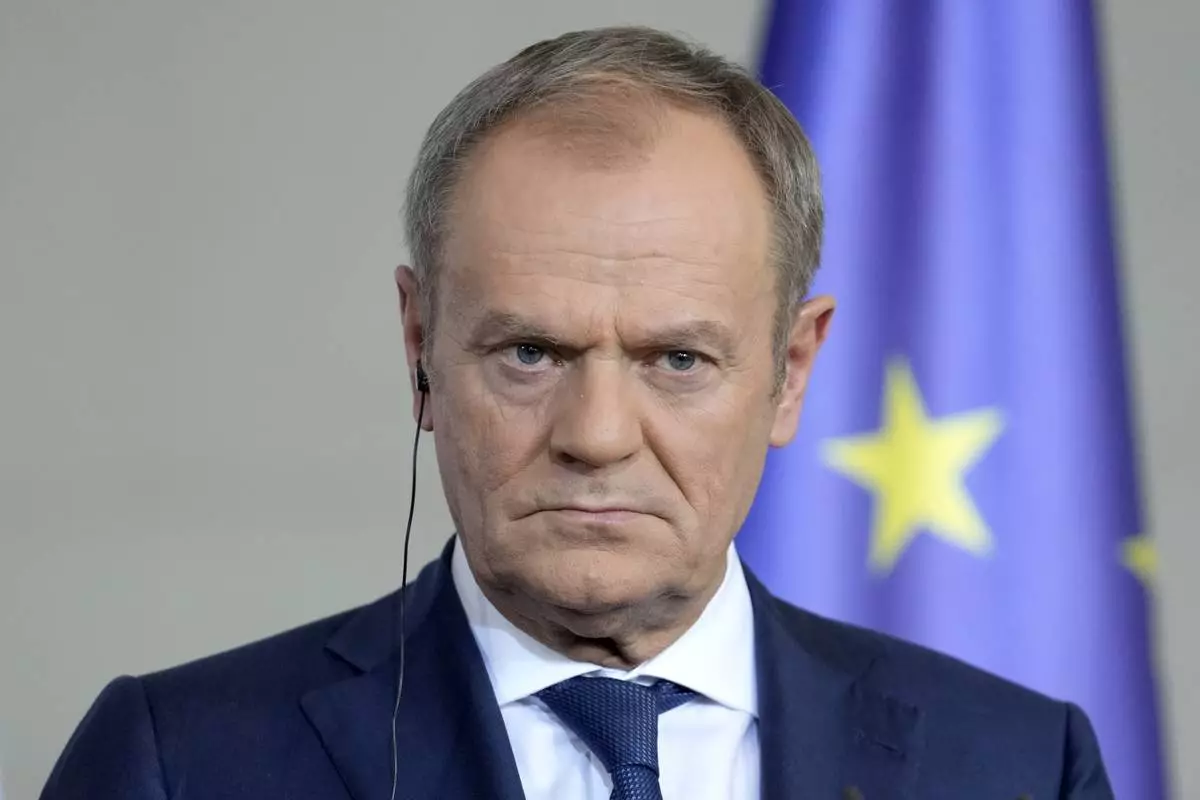
FILE - Poland's Prime Minister Donald Tusk listens to the media in Berlin, Germany, Friday, March 15, 2024. Tusk is celebrating a victory on Monday April 22, 2024 after a series of candidates supported by his party won weekend races for mayor. (AP Photo/Ebrahim Noroozi, File)















